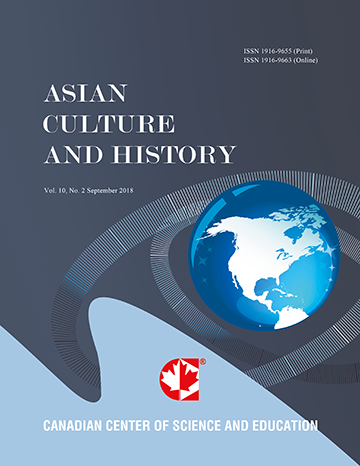Political Space and Loyalism in Ancient China: A Case Study of Li Si
- Cao Lijuan
- Ser Wue Hiong
- Lim Choon Bee
Abstract
This study adopts a historical-sociological perspective to examine the interplay between political space and the discourse of loyalty in ancient Chinese historical narratives. Focusing on the biography of Li Si in Records of the Grand Historian (Shiji), it analyses the socio-political functions of key spatial settings, such as Shangcai (his hometown), Xianyang (the imperial capital), and the prison, as sites where power relations, institutional control, and moral judgment are enacted. The research argues that spatial arrangements are not merely narrative backdrops but constitute concrete manifestations of political order and mechanisms for shaping individual agency and political identity. Through moral principles, it is socially constructed and dynamically negotiated within shifting political spaces. Li Si’s spatial trajectory, from a local scholar to a central power figure and finally to a subject of state punishment, reflects the complex tension between Confucian ethics, Legalist institutions, and imperial authority. By employing spatial narrative strategies, Sima Qian constructs loyalty as a contingent and contested concept, thereby expressing deeper concerns about legitimacy, moral accountability, and historical justice. This research not only enriches the understanding of the Shiji’s narrative structure and political logic but also contributes to the sociological interpretation of ancient political culture, particularly the spatial articulation of power and ethical norms.
- Full Text:
 PDF
PDF
- DOI:10.5539/ach.v17n2p46
Journal Metrics
Google-based Impact Factor (2017): 5.42
h-index (January 2018): 11
i10-index (January 2018): 21
h5-index (January 2018): 6
h5-median (January 2018): 9
Index
- Academic Journals Database
- CNKI Scholar
- COPAC
- EconPapers
- Elektronische Zeitschriftenbibliothek (EZB)
- Excellence in Research for Australia (ERA)
- Genamics JournalSeek
- Google Scholar
- Infotrieve
- LOCKSS
- MIAR
- NewJour
- Open J-Gate
- PKP Open Archives Harvester
- Publons
- RePEc
- Scilit
- SHERPA/RoMEO
- Standard Periodical Directory
- Technische Informationsbibliothek (TIB)
- The Keepers Registry
- Universe Digital Library
- WorldCat
Contact
- Ivan YongEditorial Assistant
- ach@ccsenet.org
